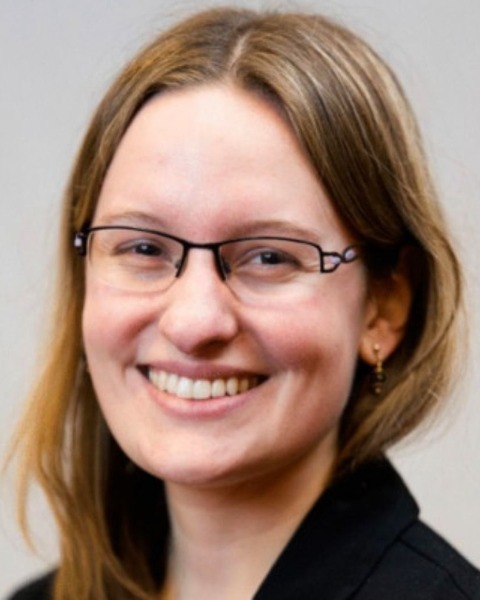Health Psychology / Behavioral Medicine - Adult
Cancer-Peer Connection in the Young Adult Cancer Context: Relocating Cancer Support to Community Settings
(PS6-A20) Cancer-peer Connection in the Young Adult Cancer Context: Relocating Cancer Support to Community Settings

Maiya Hotchkiss, B.A.
Project Coordinator
Hunter College, City University of New York
Brooklyn, New York- AC
Alyssa M. Ciniglio, None
Research Assistant
Hunter College, City University of New York
Glendale, New York - ZM
Zobaida Maria, None
Research Assistant
Hunter College, City University of New York
Brooklyn, New York - ZA
Zeba N. Ahmad, M.A., Other
Post-Doctoral Collaborator
Hunter College, City University of New York & The Graduate Center, City University of New York
New York, New York 
Megan R. Wirtz, B.A.
Doctoral Student
The Graduate Center, City University of New York
Brooklyn, New York- JF
Jennifer Ford, Ph.D.
Professor
Hunter College, City University of New York
New York, New York
Author(s)
Co-Author(s)
Social support is insufficient for young adults (YAs) during and after cancer. Cancer-peer patient/survivor interaction offers the opportunity for individuals to provide, receive, or engage in mutual support based upon shared illness experience. Despite past research demonstrating that peer-to-peer connection can be an effective source of social support among healthy YAs and older patients and survivors, cancer-peer support has not yet been explored in the YA cancer context. This study aimed to explore YA cancer-peer connection by examining reported experiences, needs, preferences, and concerns among YA survivors. YA survivors (N = 129), aged 20-40 years (M = 31.3 years; SD = 5.25 years) diagnosed with cancer between the ages of 12 and 37 (M = 27.7 years; SD = 5.87 years) completed an online survey as part of a larger study on YA survivors perceptions of their futures. Data were analyzed to examine experiences, needs, preferences, and concerns related to cancer-peer support between patients and/or survivors during and following cancer treatment. Preliminary findings indicate that a majority of participants felt it is important to meet other patients/survivors during treatment and survivorship. A majority of participants had the opportunity to meet a cancer-peer during treatment (81.4%) and in survivorship (80.6%). Nearly all participants (85.3%) expressed interest in participating in cancer-peer volunteering and/or support, with highest levels of interest in mentoring a cancer patient one-on-one, exchanging support with survivors in a group, and giving speeches/sharing their story. Regardless of when (during treatment/survivorship) and cancer-peer type (patient/survivor), findings demonstrate preferences for cancer-peer interaction between one and eight times/month, located on social media, the hospital/clinic, or outdoors, and having age and diagnosis in common. Reported experiences were often in line with these preferences. Participants most often reported cancer-peer connection as making them feel understood in treatment/survivorship, and reciprocal support and community building in survivorship. Common barriers to cancer-peer connection included logistical barriers (time, distance), exposure to sickness/death, fear it would be awkward/forced, desire to return to normal, and feeling sufficiently supported. Study findings demonstrate the importance of cancer-peer connection, both during treatment and survivorship. Findings also demonstrate a high level of opportunities, engagement, interest and perceived benefits in cancer-peer connection among YA survivors. Future research should explore the ways in which formal and informal cancer-peer support can be tailored to best serve the YA patient/survivor population, and to mitigate related concerns. Results can inform facilitation and structuring of YA cancer-peer connection and support the relocation of dependency from healthcare to community contexts among this underserved and often isolated survivor population.

